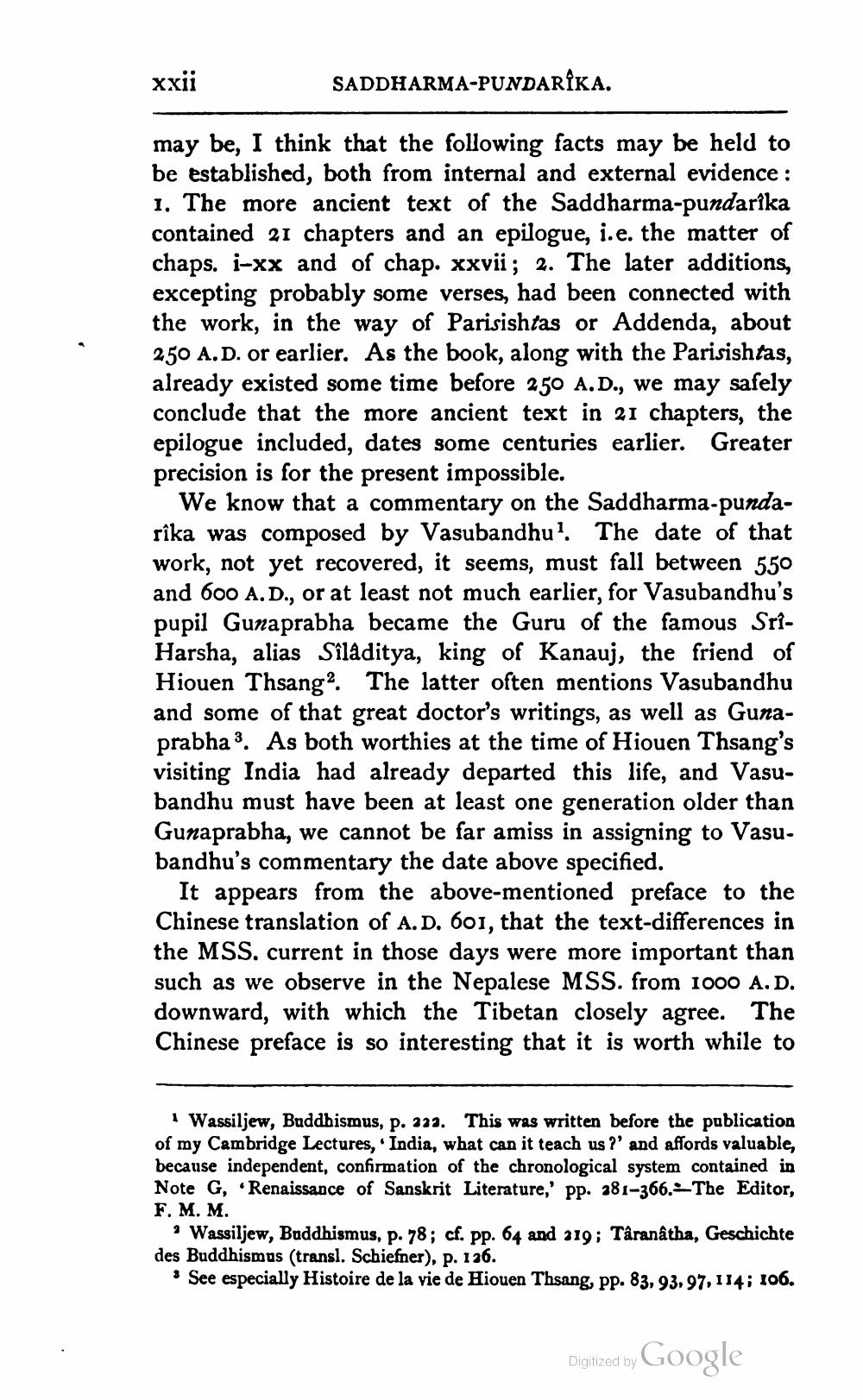________________
xxii
SADDHARMA-PUNDARÎKA.
may be, I think that the following facts may be held to be established, both from internal and external evidence: 1. The more ancient text of the Saddharma-pundarîka contained 21 chapters and an epilogue, i.e. the matter of chaps. i-xx and of chap. xxvii; 2. The later additions, excepting probably some verses, had been connected with the work, in the way of Parisishtas or Addenda, about 250 A.D. or earlier. As the book, along with the Parisishtas, already existed some time before 250 A.D., we may safely conclude that the more ancient text in 21 chapters, the epilogue included, dates some centuries earlier. Greater precision is for the present impossible.
We know that a commentary on the Saddharma-pundarîka was composed by Vasubandhu'. The date of that work, not yet recovered, it seems, must fall between 550 and 600 A.D., or at least not much earlier, for Vasubandhu's pupil Gunaprabha became the Guru of the famous SriHarsha, alias Sîlâditya, king of Kanauj, the friend of Hiouen Thsang2. The latter often mentions Vasubandhu and some of that great doctor's writings, as well as Gunaprabha3. As both worthies at the time of Hiouen Thsang's visiting India had already departed this life, and Vasubandhu must have been at least one generation older than Gunaprabha, we cannot be far amiss in assigning to Vasubandhu's commentary the date above specified.
It appears from the above-mentioned preface to the Chinese translation of A. D. 601, that the text-differences in the MSS. current in those days were more important than such as we observe in the Nepalese MSS. from 1000 A. D. downward, with which the Tibetan closely agree. The Chinese preface is so interesting that it is worth while to
Wassiljew, Buddhismus, p. 222. This was written before the publication of my Cambridge Lectures, India, what can it teach us?' and affords valuable, because independent, confirmation of the chronological system contained in Note G, Renaissance of Sanskrit Literature,' pp. 281-366.The Editor,
F. M. M.
' Wassiljew, Buddhismus, p. 78; cf. pp. 64 and 219; Târanâtha, Geschichte des Buddhismus (transl. Schiefner), p. 136.
See especially Histoire de la vie de Hiouen Thsang, pp. 83, 93, 97, 114; 106.
Digitized by
Google




